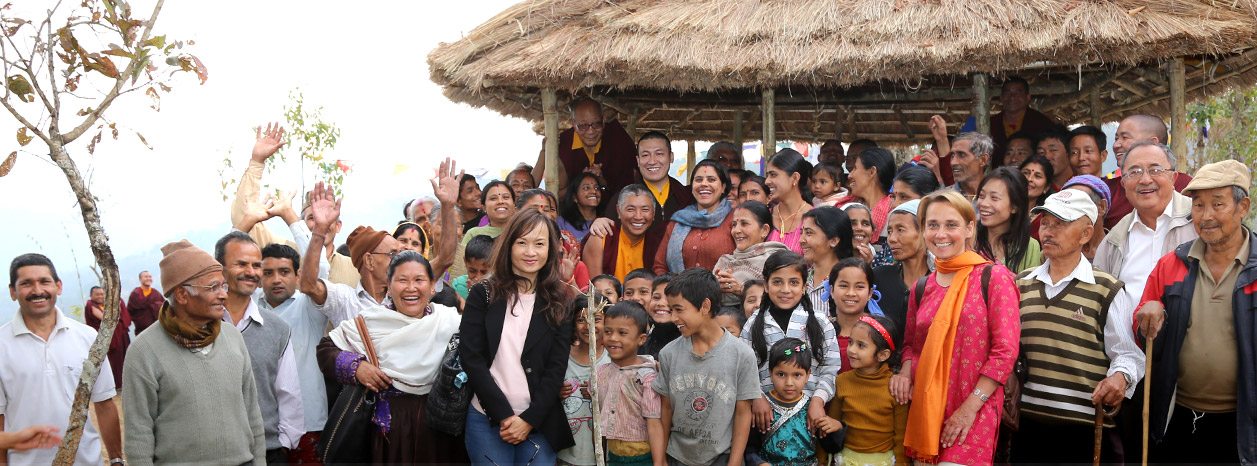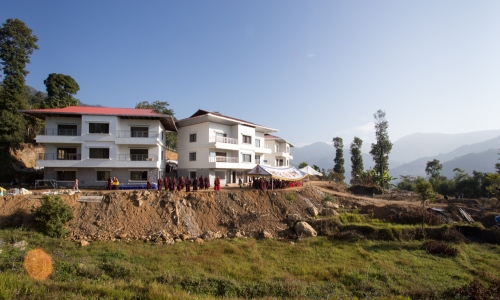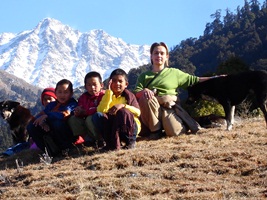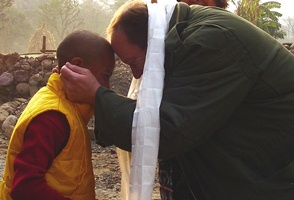
Our Programmes
SABA’s intent is to reach out to the local community by using the premises of its newly developed education centres as platforms and international meeting points for educational and social activities. The following extra activities will be offered, therefore, not only to the students but also to the local community.
Education
SABA continues its current strategies to set up recognised Buddhist schools around India and in the Himalayan regions, so that families have the freedom to give their children access to both modern and Buddhist education. It will promote educational projects to help young people nurture their innate qualities of wisdom and compassion for the benefit of society.
Medical and healthcare
Volunteers experienced in healthcare: doctors, practitioners of complementary medicine, physical therapists, as well as from other therapeutic or nursing sectors, will take part in the programmes.
Besides providing medical supplies for school residents, the centres intend to offer courses in first aid and preventive measures to the school residents, as well as to the local community. In the future, we plan to provide our neighbours with free medical examinations and participation in healthcare workshops.
Agriculture and organic farming
SABA will use the grounds of its institutions self-sufficiently, utilising organic farming for growing fruit and vegetables. The centres will employ eco-friendly agricultural techniques, which preserve as much soil, water and biodiversity as possible, and which minimise harmful side-effects. The education concept envisages that students will learn about the careful treatment of animals and the environment. Workshops in these fields will form a compulsory component of the classes. To achieve this goal, we will invite local farmers to join the regular workshops. This will introduce alternative practices to the conventional chemical-dependent agriculture.
Environmental protection
It is SABA’s long-term vision to undertake active steps to improve the environment, as this plays an increasingly important role in health issues and living conditions. Therefore, one of the key focus areas of the education centers will be to focus on teaching students and people from the local area about the importance of protecting the environment.
The Indian National Policy on Education, 1986 states: “There is a paramount need to create a consciousness of the Environment. It must permeate all ages and all sections of society, beginning with the child. Environmental consciousness should inform teaching in schools and colleges. This aspect will be integrated in the entire educational process.”
Education plays an important role in raising awareness about environmental issues and transforming the attitudes and behaviours that can make a difference within local societies. It is therefore part of all curricula to integrate these subjects into the daily routine, in an age-appropriate way.
Furthermore, the centres will host workshops for the local community designed to generate environmental awareness. This is to contribute to a deeper understanding about increasing water and air pollution and deforestation. We will invite experts from all over the world to teach innovative approaches to sustainable agriculture, and how to conserve resources.


 A New Kind of Education
A New Kind of Education We are looking for volunteer primary teachers of 6-12 year old children, who have attained experience and qualifications to teach in alternative pedagogies and would like to spend several months or a sabbatical year at the Karmapa Center of Education. This is an opportunity to live and teach at the center.
We are looking for volunteer primary teachers of 6-12 year old children, who have attained experience and qualifications to teach in alternative pedagogies and would like to spend several months or a sabbatical year at the Karmapa Center of Education. This is an opportunity to live and teach at the center. 
 Support Us
Support Us